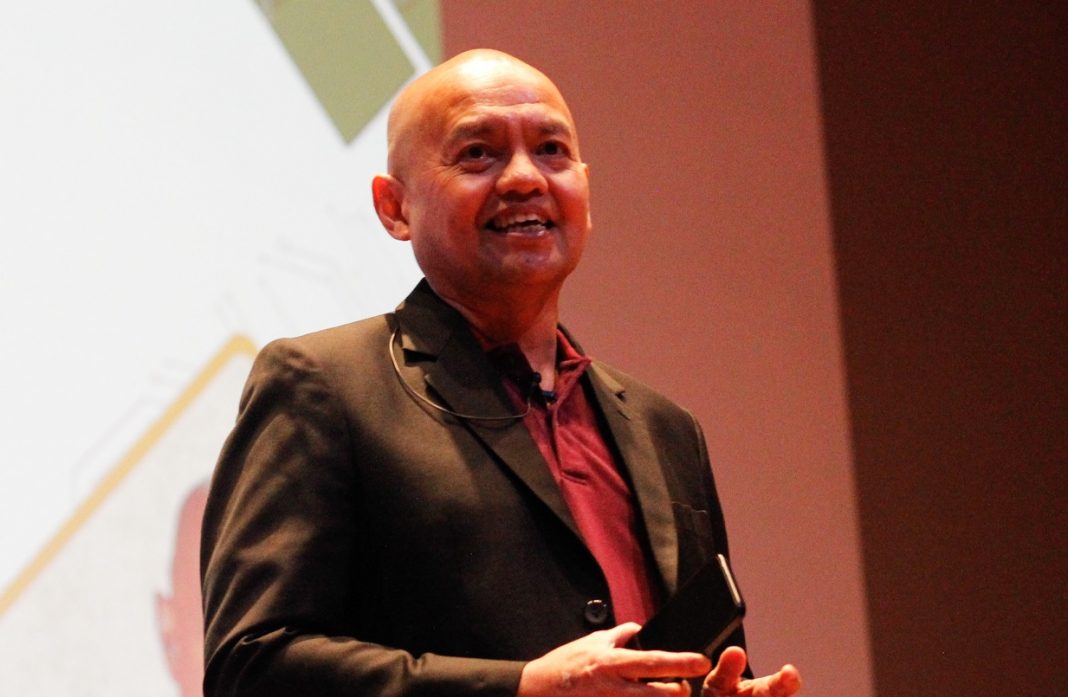Supreme Court (SC) senior associate justice Marvic Leonen warned law schools in the country to cope with emerging technologies, particularly AI or artificial intelligence, or risk falling behind.
Leonen made the statement at the University of San Carlos (USC) – College of Law’s inaugural academic forum “Jurisprudence on Trial: Unveiling Philosophy in Law Practice” held on Nov. 25 at the Michael Richartz Center – USC Talamban Campus in Cebu City.
In his lecture titled “What happens to Law with Artificial Intelligence?: Initial Thoughts on Legal Philosophy, Digitalization and Artificial Intelligence” before law students and law practitioners, Leonen shared his thoughts on the technological advancements and changes the world is facing, especially in the legal profession.
He said: “[Y]ou cannot pause artificial intelligence (AI). You cannot pause evolution,” and added that “in the next two or three years if law schools do not adjust, legal education as we know it now will be very archaic.”
To better understand these changes, Leonen candidly shared with the audience some stories during his time as a law student, then public interest lawyer, and now SC justice, and stressed how the practice of law has advanced from then to now.
He pointed out not just the developments in law practice itself, but even highlighted the evolution of doctrines, giving as example his ponencia in the case of Tan-Andal vs. Andal.
Leonen also underscored how lucky the new generation of law students are because of the various tools and apps that are now available in the market that can help not just them but lawyers and litigants alike.
One of the tools he acknowledged was ChatGPT. According to him, ChatGPT should be embraced not as an authentic source of information, but as a reality that people are going to use this resource.
In line with this, he referred to the SC Committee on Computerization and Library, which he co-chairs with chief justice Alexander G. Gesmundo, and how they are looking at introducing new apps for our to better manage their salas.
Furthermore, he identified the reforms implemented by the Supreme Court under its Strategic Plan for Judicial Innovations 2022-2027 (SPJI) leaning towards a more technology-driven Judiciary.
Among those he cited are:
- The Judiciary ePayment Solution (JEPS), an online platform that allows the assessment and payment of legal fees and other collections of the judiciary in a more convenient and accessible manner;
- The improved Enhanced Justice on Wheels Program (EJOW);
- The eCourt version 2.0;
- The Guidelines on Submission of Electronic Copies of Pleadings and other Court Submissions being Filed before the Lower Courts Pursuant to the Efficient Use of Paper Rule;
- Other possible enhancements in the conduct of the Bar examinations.
He concluded his message by reminding everyone that “resilience is something that lawyers should develop” because of the changing times.




